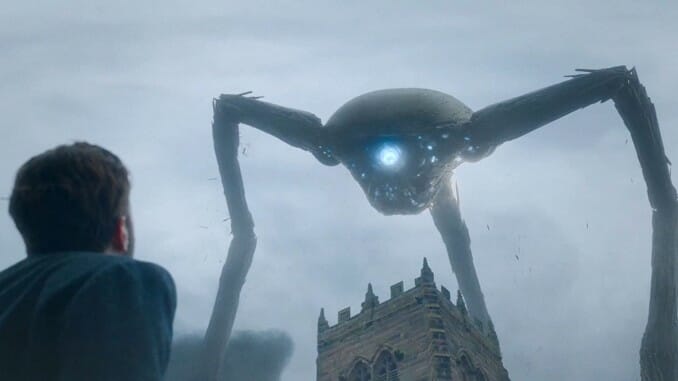The Movies Trying to Make Sense of 9/11 Serve as an Honest Historical Record

Some people may be too young to remember—or weren’t even around to remember—how much utter confusion commenced after the twin towers of the World Trade Center fell on Tuesday morning, September 11, 2001.
I mean, nobody knew what to do. Even our President at the time, who was at a Sarasota school reading “The Pet Goat” to a bunch of kids, looked like he was paralyzed with fear when he got the news. Our way of life changed instantly: Something we never thought could happen actually happened. Innocent people died, from the various people in those buildings to the first responders who spent weeks and months trying to find them. We were all stuck in a morbid state of panic, afraid of what the hell would happen next and trying to figure out how we could prevent more attacks from coming to our homeland.
It was a super-sensitive time. There was actually a point where people speculated on whether or not we could indulge in the same snarky entertainment we used to pre-9/11. It seemed things were on the verge of becoming more sincere and earnest. Old fogies like Graydon Carter and Roger Rosenblatt began rumbling that the age of irony was done and professional satirists like David Letterman, Jon Stewart and the Saturday Night Live crew may have to change their smart-ass shtick. In a twist that could be considered ironic, audiences gravitated to these smart-asses even more—even after a life-altering disaster, people need a good laugh wherever they can get it.
It was also a topic of discussion whether or not movies could continue giving us the same escapist thrills. Sure, it was awesome seeing the aliens blow up the White House in Independence Day five years earlier. But we never thought shit like that could really happen!
The film industry walked on eggshells during this time, trying not to upset or offend shell-shocked audiences. Some studios delayed the release of films so they could omit some things. The Michael Douglas thriller Don’t Say a Word, released three weeks after the attacks, cut out shots that included the World Trade Center. (They did keep the finale where—spoilers—the bad guy is buried alive.) The Arnold Schwarzenegger actioner Collateral Damage was heavily reshaped before getting released the following February, toning down its terrorism theme and taking out scenes where a pre-Modern Family Sofia Vergara hijacks a plane. Meanwhile, Miramax delayed releasing the “comedy” View from the Top, starring Gwyneth Paltrow as an ambitious flight attendant, for nearly two years, reshooting and retweaking scenes so it wouldn’t look like the movie was making fun of our brave associates in the sky.
As Americans began getting more bloodthirsty, ready to go after Osama bin Laden and the rest of the al-Qaeda conspirators, jingoistic war movies started to get back in vogue. In November of 2001, the action piffle Behind Enemy Lines, with Owen Wilson as a naval flight officer shot down over Bosnia and Gene Hackman as the commanding officer trying to get him out, was a surprising success, taking in nearly $100 million at the box office. A month later, Ridley Scott’s Black Hawk Down, where several studly It Boys (Hartnett! McGregor! Bana!) re-enacted the U.S.’s 1993 raid on Mogadishu, was released. Even though the film was criticized for its inaccuracies, it became a box office hit that would go on to win Oscars for Best Film Editing and Best Sound.
-

-

-

-

-

-

-

-

-

-

-

-

-

-

-

-

-

-

-

-

-

-

-

-

-

-

-

-

-

-

-

-

-

-

-

-

-

-

-

-








































